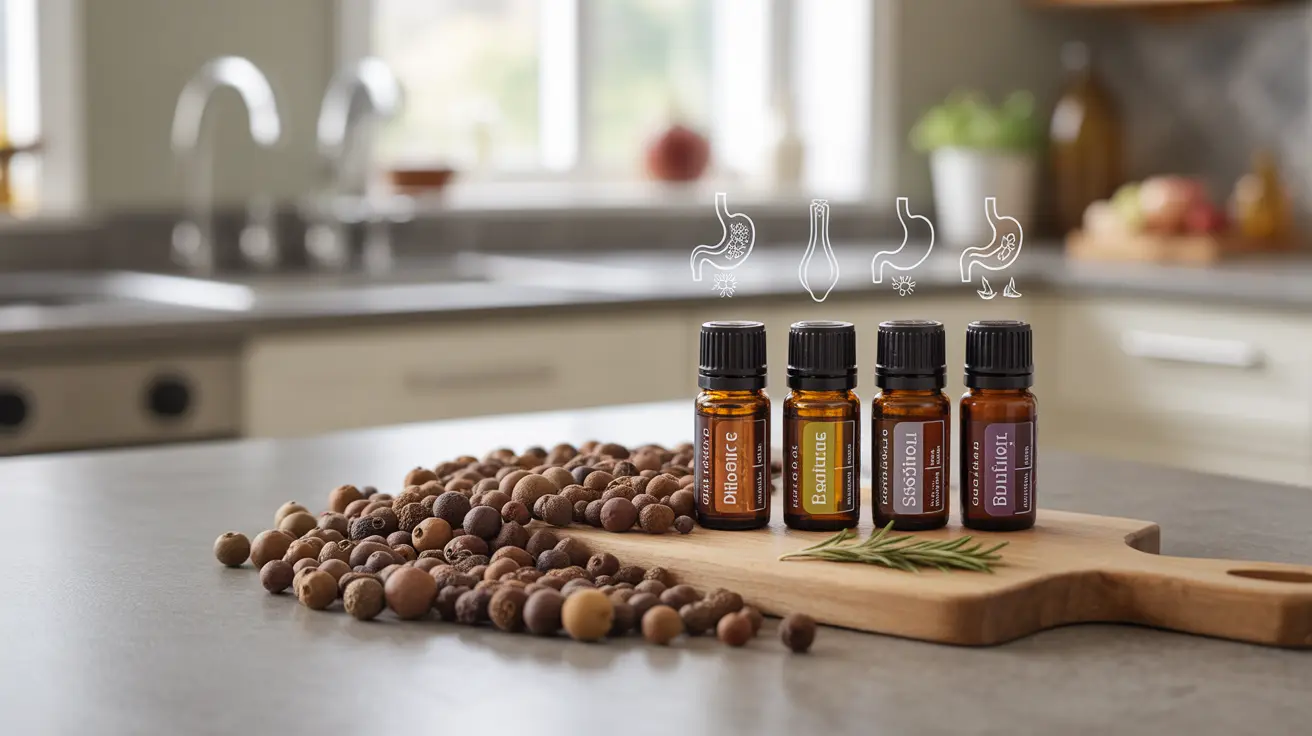Allspice, despite its name suggesting a blend of spices, is actually a single spice derived from the dried berries of the Pimenta dioica tree. This remarkable seasoning has been used for centuries not only in cooking but also in traditional medicine for its potential health-promoting properties.
Modern research has begun to validate many of the traditional uses of allspice, revealing its impressive array of bioactive compounds and therapeutic potential. Let's explore the scientific evidence behind allspice's health benefits and understand why this versatile spice might deserve a prominent place in your wellness routine.
The Natural Compounds in Allspice
Allspice contains several powerful compounds that contribute to its health benefits, including:
- Eugenol
- Quercetin
- Gallic acid
- Essential oils
- Tannins
These compounds work together to provide allspice's characteristic therapeutic properties, including anti-inflammatory, antimicrobial, and antioxidant effects.
Digestive Health Benefits
One of allspice's most well-documented benefits relates to digestive health. The eugenol content helps relax the digestive tract muscles, potentially reducing cramping and bloating. Additionally, allspice may stimulate digestive enzyme production, supporting more efficient nutrient absorption.
Supporting Gut Function
The carminative properties of allspice can help reduce gas formation and ease digestive discomfort. Regular consumption may also support a healthy gut microbiome, though more research is needed to fully understand this relationship.
Inflammatory Response and Pain Management
The anti-inflammatory compounds in allspice may help address various types of inflammation throughout the body. These properties make it particularly interesting for those dealing with chronic inflammatory conditions.
Joint and Muscle Support
When used in traditional applications, such as warming rubs or teas, allspice may help alleviate muscle soreness and joint discomfort. The eugenol content provides natural analgesic properties that could complement other pain management approaches.
Women's Health Considerations
Allspice has traditionally been used to support women's health, particularly during menopause. Its natural compounds may help regulate hormone levels, though it's essential to approach such uses with appropriate medical guidance.
Cancer-Fighting Potential
Recent scientific interest has focused on allspice's potential anti-cancer properties. Laboratory studies suggest that certain compounds in allspice may help inhibit cancer cell growth, though human studies are still needed to confirm these effects.
Safety and Usage Guidelines
While allspice is generally safe when used in culinary amounts, it's important to exercise caution with concentrated forms or therapeutic doses. Certain populations, including pregnant women and those on specific medications, should consult healthcare providers before using allspice medicinally.
Frequently Asked Questions
What are the health benefits of allspice and how does it support digestion and immunity?
Allspice supports digestion through its carminative properties and enzyme-stimulating effects. It also contains antimicrobial compounds that may help boost immune function. The antioxidants in allspice help protect cells from damage and support overall immune system health.
Can allspice help relieve inflammation and manage pain such as arthritis or muscle aches?
Yes, allspice contains natural anti-inflammatory compounds, particularly eugenol, which may help reduce inflammation and pain. When used topically or consumed as tea, it may help alleviate muscle aches and joint discomfort, though results can vary among individuals.
Is allspice safe to use during pregnancy and breastfeeding, and what precautions should be taken?
While culinary amounts of allspice are generally considered safe during pregnancy and breastfeeding, medicinal doses should be avoided. Pregnant and nursing women should consult their healthcare provider before using allspice supplements or concentrated forms.
How does allspice affect menopause symptoms and hormone levels in women?
Allspice may help regulate hormone levels and reduce menopause symptoms due to its natural compounds. However, research is limited, and women should work with healthcare providers to determine appropriate use during menopause.
Does allspice have cancer-fighting properties and could it help slow the growth of certain cancers?
Laboratory studies suggest that compounds in allspice may have anti-cancer properties, including the ability to inhibit cancer cell growth. However, more human studies are needed to confirm these effects and determine appropriate therapeutic applications.




